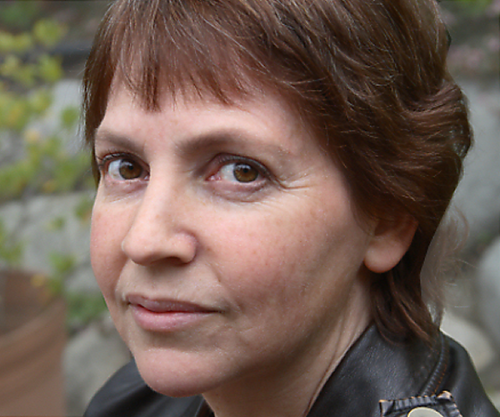
About Karen A. Wyle:
Karen A. Wyle was born a Connecticut Yankee, but eventually settled in Bloomington, Indiana, home of Indiana University. She now considers herself a Hoosier. Wyle's childhood ambition was to be the youngest ever published novelist. While writing her first novel at age 10, she was mortified to learn that some British upstart had beaten her to the goal at age 9.
Wyle is an appellate attorney, photographer, political junkie, and mother of two daughters. Her voice is the product of almost five decades of reading both literary and genre fiction. It is no doubt also influenced, although she hopes not fatally tainted, by her years of law practice. Her personal history has led her to focus on often-intertwined themes of family, communication, the impossibility of controlling events, and the persistence of unfinished business. Her novels include science fiction (near future as well as stories set on other planets and including aliens), one afterlife fantasy/family drama, and historical romance. She has also published one nonfiction book, intended for authors, law students, and anyone else interested in learning more about the American legal landscape.
What inspires you to write?
My near-future science fiction tends to spring from reports of scientific research or discoveries. More generally, I am a storyteller and wordsmith by nature, and while I am not convinced we are born with a particular purpose, I feel as if I'm serving mine when I write fiction and particularly novels.
What authors do you read when you aren’t writing?
I'm not good at picking favorite anything, but here are some of them: Mary Doria Russell, Lois McMaster Bujold, Grace Burrowes, Becky Chambers, John Scalzi, Mary Robinette Kowal, Naomi Novik.
Tell us about your writing process.
So far, I've written rough drafts of all my novels (not counting juvenilia) during National Novel Writing Month, aka NaNoWriMo or NaNo, which takes place every November. I start with notes on characters and scenes, but no actual outline. For historical romance, I have research notes as well. I write in Scrivener for PC, and most often have the draft on the left and either scene notes or research notes on the right. I do some additional research while writing the rough draft, but leave much of it for later in the process.
I usually take December off, except for brainstorming titles and thinking about book covers. Then I revise and edit for months, send a semifinal version to beta readers over the summer, and publish in mid-October.
For Fiction Writers: Do you listen (or talk to) to your characters?
I don't so much listen to or talk to characters as follow their lead. Not infrequently, they decide that a particular scene should not proceed as I'd tentatively imagined. I love having them surprise me!
What advice would you give other writers?
First and most important: don't believe anyone who declares that there are hard and fast rules for writing, editing, and publishing. What works splendidly for one writer will be unworkable for another.
Don't believe anyone's claim that they have Amazon's algorithms all figured out — especially if that claim is months or years old.
Read contracts carefully and be prepared to walk away from a deal that limits your future options — very common these days in both publishing and agency contracts. Don't rely on an agent to vet a publishing contract. You can hire an intellectual property (IP) attorney to spend an hour or three reviewing a contract for much less than you're likely to give up by accepting a standard contract as presented.
How did you decide how to publish your books?
When I finished the rough draft of my first SF novel, Twin-Bred, in the fall of 2010, I spent most of the next year editing and revising, and at the same time researching publishing options. At first, I was looking up agents and publishers. By the end, I'd decided self-publishing made more sense. I wanted the control over my content, schedule, covers, and marketing that only self-publishing would provide.
What do you think about the future of book publishing?
While I have no particular precognitive powers, I expect that both paper books and ebooks will continue to be widely available; that at least some independent bookstores will survive for those who like to browse and/or discuss books with knowledgeable booksellers; that the audiobook market will grow, but will grow more if the prices come down; and that something will eventually disturb Amazon's march toward global domination (of the book market).
What genres do you write?: science fiction, afterlife fantasy, historical romance
What formats are your books in?: Both eBook and Print
Website(s)
Karen A. Wyle Home Page Link
Link To Karen A. Wyle Page On Amazon
Your Social Media Links
Goodreads
Facebook
Twitter
LinkedIn
All information in this post is presented “as is” supplied by the author. We don’t edit to allow you the reader to hear the author in their own voice.
